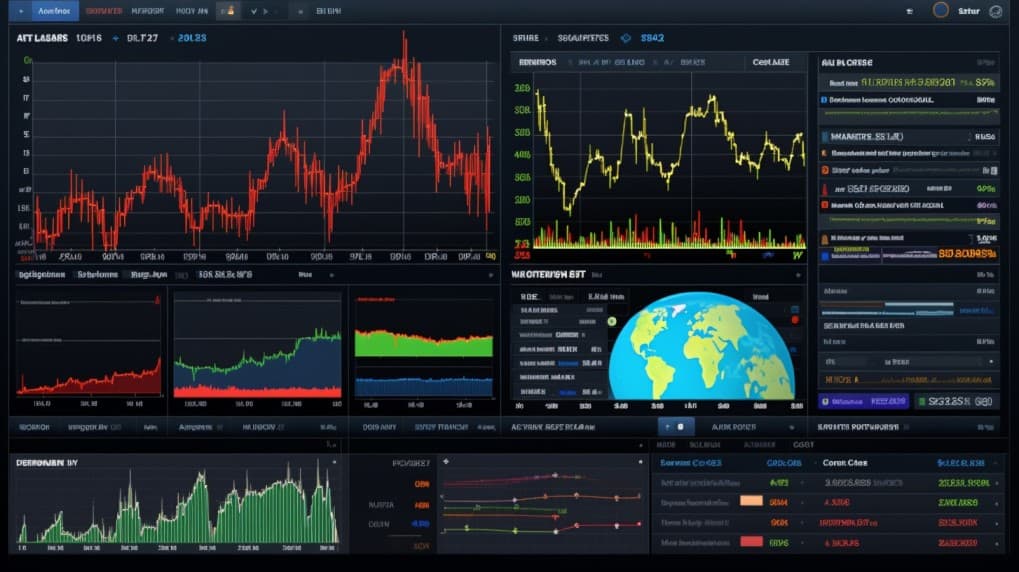
What are the best ETFs to invest in India?
When it comes to investing in India, Exchange-Traded Funds (ETFs) offer a convenient and diversified way to gain exposure to the Indian market. ETFs are investment funds that trade on stock exchanges, providing investors with the opportunity to invest in a basket of securities that track a specific index or sector. In this article, we will explore some of the best ETFs to invest in India and compare them with other similar options.
Best ETFs to Invest in India - Comparing ETFs
One of the top ETFs to consider for investing in India is the "iShares MSCI India ETF" (Ticker: INDA). This ETF aims to track the performance of the MSCI India Index, which represents a broad range of Indian companies across various sectors. INDA provides exposure to both large and mid-cap Indian stocks and has a solid track record. It offers investors the opportunity to participate in India's economic growth and diversify their portfolios.
Comparing INDA with another similar ETF, the "WisdomTree India Earnings Fund" (Ticker: EPI), we find some key differences. While both ETFs provide exposure to Indian equities, EPI focuses specifically on Indian companies that are profitable and have a history of generating earnings. This targeted approach can be appealing to investors seeking companies with strong fundamentals. However, it's important to note that this narrower focus may result in higher volatility compared to a more diversified ETF like INDA.
Best ETFs to Invest in India - Investing in Emerging Markets
Investing in India through ETFs offers exposure to one of the fastest-growing emerging markets in the world. India has a young and dynamic population, a thriving technology sector, and a growing middle class. As such, investors looking to tap into the potential of emerging markets and capitalize on India's growth story may find ETFs an attractive option.
 INDA,EPI overlap What are the best ETFs to invest in India?
INDA,EPI overlap What are the best ETFs to invest in India?
Best ETFs to Invest in India - Considerations for Indian Market Exposure
When considering ETFs for investing in India, there are a few key factors to keep in mind. Firstly, it's important to assess the expense ratio of the ETFs, as this impacts the overall cost of holding the fund. Additionally, investors should consider the liquidity of the ETFs, as higher liquidity ensures easier trading and potentially narrower bid-ask spreads. Lastly, understanding the underlying index that the ETF tracks is essential to ensure it aligns with your investment objectives and risk appetite.
Best ETFs to Invest in India - Diversification and Risk Management
Diversification is a critical aspect of any investment strategy, and ETFs can help achieve this goal. By investing in a basket of Indian stocks through an ETF, investors can mitigate the risks associated with individual stock picking. Furthermore, ETFs provide an easy way to manage risk by allowing investors to allocate their funds across different sectors or market segments within India.
Conclusion
Investing in India through ETFs provides a convenient and diversified approach to gain exposure to the Indian market. The iShares MSCI India ETF (INDA) and WisdomTree India Earnings Fund (EPI) are two ETFs worth considering for Indian market exposure, each with its own investment approach and focus. However, it's important to conduct thorough research and consider factors such as expense ratio, liquidity, and the underlying index before making any investment decisions.
Disclaimer: This article is for informational purposes only and does not constitute investment advice. Investing in ETFs involves risks, and investors should carefully consider their investment objectives and risk tolerance before making any investment decisions.
Sources:
iShares MSCI India ETF (INDA):
WisdomTree India Earnings Fund (EPI):
"Exchange-Traded Fund (ETF)" - Investopedia:
FAQ
What are the best ETFs to invest in India?
The best ETFs to invest in India can vary depending on individual investment goals and preferences. However, here are six popular ETFs that provide exposure to the Indian market:
What is the performance history of these Indian ETFs?
The performance history of Indian ETFs can vary over time due to market conditions. It is recommended to review the historical performance of specific ETFs through reliable financial websites or consult with a financial advisor to get accurate and up-to-date information.
What are the expense ratios associated with these ETFs?
Expense ratios for ETFs can vary depending on the provider and the specific fund. It's important to review the fund's prospectus or consult with a financial advisor to determine the expense ratio associated with each ETF.
Are there any sector-specific ETFs focused on India?
Yes, there are sector-specific ETFs that focus on specific sectors within the Indian market. Some examples include banking, technology, healthcare, energy, and infrastructure sectors. Investors interested in specific sectors can explore ETFs that target those sectors in India.
Can these Indian ETFs be purchased by international investors?
Yes, many Indian ETFs can be purchased by international investors. However, it's important to check with your brokerage firm or financial advisor to ensure that you have access to these ETFs based on your country of residence and brokerage regulations.




















